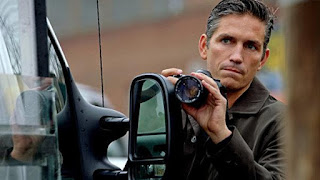A Modern Dark Knight

"Because he's the hero Gotham deserves, but not the one it needs right now. So we'll hunt him because he can take it. Because he's not our hero. He's a silent guardian, a watchful protector. A dark knight." — James Gordon, "The Dark Knight"
Jonathan Nolan might not be as famous as his brother, Christopher, but he's been a part of, arguably, the greatest superhero franchise of all time — the reboot of "Batman." "The Dark Knight," released in 2008, was a transcendent film. It was a genre picture that, in every way, exceeded the constrains of its genre. I still maintain that it was not only the best film of that year, but the best film of the first decade of the 21st Century.
There are reasons for that. I think that, more than anything, the film is reflective of the world the way it is, and the film's tension is that, while the Nolans realize that, they yearn for something better. As I said when I covered this film for Faith in Film, both Batman and the Joker express a worldview regarding humanity, but only one mirrors the worldview of the Bible — and it isn't Batman. That's why the film goes to great lengths to talk about the way we can build and maintain our hope in the temporal things of this world, even while acknowledging that is folly.
Batman is probably the most grounded superhero. He doesn't have superpowers, he is essentially a man, with means and specialized training, who seeks to operate outside the system to preserve the system, and the faith of people in the system. Especially in the world created by the Nolans, where Batman is stripped of most of the trappings of a comic book world.
Which is what makes Jonathan Nolan's work on the small screen fascinating. Nolan is the creator of "Person of Interest," one of the top-rated new series on CBS. The show follows a wealthy computer genius who helped design a computer system that monitors all electronic surveillance at all times. Tired of just seeing a broken world, Finch (Michael Emerson) decides to act. He hires an ex-CIA field operative, Reese (Jim Caviezel), to be his man in the field. Together, they use the information at their disposal along with Finch's wealth and Reese's skills to change the world for the better.
The pair operate outside the system, sometimes breaking the rules of that system, in order to uphold the system and the faith of the people in the system. Sound familiar? What is a vigilante? It is someone who believes so strongly in the rule of order that they are willing to break the rule of order to enforce it. It's a logical paradox. That is what Batman represents, a logical paradox that is somewhat comforting to humanity.
Where Batman is fantasy, the world of "Person of Interest" feels surprisingly grounded in reality. That's the appeal of the show, in some ways, as it continues to unfold a strong first season. The show has managed to capture, in an organic way, the elements that draw us all to the Batman narrative. And it's done it in a way that seems possible for this 21st Century world. And you can't help but root for Finch and Reese because, in an unsettled time for the world, this idea offers hope.
This summer, Jonathan and his brother, Christopher, will complete their vision for the Dark Knight on the big screen, but I find it somewhat comforting that those ideals, the exploration of the larger themes begun in those films, can continue in some way with "Person of Interest." It is a fascinating and compelling show that just might be a closer reflection of 21st Century America than we'd like to admit.



Comments
Post a Comment